
Electronics Sciences Course Details - Fees, Subjects, Syllabus, Duration, Eligibility, Career Scope
Degrees offered: M.Sc., B.Sc., B.Sc.(Hons), Ph.D, Diploma
What is Electronics Sciences
Electronics Sciences is a sub-discipline of physics, technology and engineering which studies the controlled flow and emission of electrons in a vacuum, and matter. This differentiates it from electrical engineering as it utilises active devices to control electron flow by rectification and amplification instead of using passive effects such as resistance, inductance and capacitance.
In this curriculum of in this field of Physics, students learn the fundamentals of Analogue Electronics, Communications, Electromagnetic, Digital System Design, Mathematics and Optoelectronics.The motive of this course is to equip students with the required knowledge and the essential practical training to make them efficient with technology and to take up relevant projects.
Highlights - Electronics Sciences
| Particulars | Values |
|---|---|
Branch Name | Electronics Sciences |
Degree | B.E/B.Tech, M.E/M.Tech |
Duration | UG: 4 years PG: 2 years |
Eligibility | UG: 10+2 PG: Bachelor’s degree |
Admission Process | Entrance Exam |
Top Entrance Exams | JEE Main, JEE Advanced, GATE |
Average Course Fees | Rs, 7,740 to Rs. 2.30 Lakhs |
Career Options | Design Engineer, Network Planning Engineer, Production Engineer, Service Maintenance Engineer, Electronic Support Engineer |
Average Salary | Rs. 6 LPA ( for Electronic Support Engineer) |
Recruiting Companies | AMD, Intel, Honeywell, BHEL, TATA Motors, Jindal Steel and Powers Ltd. |
Top Electronics Sciences Colleges in India
Candidates are advised to carefully meet the eligibility requirements of the desired course, the admission is based on either entrance examination or merit score. Candidates are advised to carefully follow the admission process of the course. Mentioned below are the top Electronics Sciences colleges in India.
| Colleges | Fees |
|---|---|
Rs. 1.44 Lakhs | |
Rs. 96,000 | |
Rs. 39,600 | |
Rs. 2.30 Lakhs | |
Rs, 7,740 | |
Rs. 48,330 | |
Rs. 77,250 | |
Rs. 70,410 | |
Rs. 94,200 | |
Rs. 77,950 |
Top Private Electronics Sciences Colleges in India
Numerous private institutions in India provide Electronics Sciences courses. The admission process in these colleges typically involves either entrance examinations or direct admissions based on merit scores. Here are some of the leading colleges in India for Electronics Sciences.
| Colleges | Fees |
|---|---|
BESC Kolkata | Rs. 1.44 Lakhs |
JBAS College Chennai | Rs. 96,000 |
MGMM Jabalpur | Rs. 39,600 |
NPTI Nagpur | Rs. 2.30 Lakhs |
New Arts College Ahmedabad | Rs, 7,740 |
Top Government Electronics Sciences Colleges in India
There are a number of government engineering institutes in India that provide courses in Electronics Sciences. Candidates are recommended to thoroughly understand the admission process and meet the eligibility criteria before applying. Here are some of the top government institutes in India offering Electronics Sciences courses:
| Colleges | Fees |
|---|---|
New Arts College Ahmedabad | Rs, 7,740 |
ARSD College Delhi | Rs. 48,330 |
Asutosh College | Rs. 77,250 |
BCAS New Delhi | Rs. 70,410 |
College of Applied Sciences | Rs. 94,200 |
IEHE Bhopal | Rs. 77,950 |
Eligibility Criteria (UG & PG) of Electronics Sciences
Eligibility Criteria for UG Courses
To pursue Electronics Sciences as an undergraduate, the minimum eligibility criteria is securing 50 per cent marks or equivalent from a recognised board or university. Additionally, the candidate should also pass the entrance examination conducted by various institutions to gain admission in the course.
- Candidates must have passed Class 12 with Science stream or its equivalent from any recognised board in India.
- Candidates are required to have a minimum of 50 per cent aggregate or more in the qualifying examination.
- Reserved categories (SC/ ST candidates) are given relaxation up to 5 per cent.
- The qualifying examination must be with Physics, Mathematics, Chemistry, and an extra subject of the student's choice.
Top Entrance Exams for UG Courses
JEE Main: JEE Main is conducted for admission to top-tier engineering colleges like NITs, IIITs, and GFTIs. Candidates need to be aware of some specific factors before attempting the JEE Main exam to get into B Tech Instrumentation & Control Engineering colleges and the JEE mains exam is conducted by NTA.
JEE Advanced: JEE Advanced is conducted by the Indian Institute of Technology. This is a national level exam. The exam is held once in a year for IITs. The mode of the exam is online. JEE Advanced is conducted in a computer-based mode at the national level. It has two papers (Paper I & Paper II) conducted for three hours for each paper.
Eligibility Criteria for PG Courses
For postgraduate studies in Electronics Sciences, the minimum eligibility criteria is a bachelor’s degree in Electronics Sciences or a related field from a recognised university. Mentioned below are the eligibility requirements for the postgraduate degree programmes in the field of Electronics Sciences.
- Candidates should hold a Bachelor’s degree in Electronics Engineering or a related field.
- The aggregate marks obtained during the undergraduate course should be at least 50 per cent, or as specified by the particular institution.
- Admissions may occasionally be based on a combination of scores from the entrance examination and performance in personal interviews or group discussions, according to the university’s criteria.
Top Entrance Exams for PG Courses
GATE: GATE stands for Graduate Aptitude Test in Engineering and it is a postgraduate entrance examination in the field of Engineering, conducted by one of the IITs to provide admission to different IITs, NITs, and GFTIs. Students can find the relevant information for GATE Examination in the table below:
College Predictors VIEW ALL
Scope of Electronics Sciences in India and Abroad
A career in electronics is valuable in all aspects as it teaches you how to resolve any problem that comes your way. The electronics industry is developing at a rapid speed and countless career opportunities can be found in the electronic and IT industries.
Electronics is a discipline of physics which includes creating and applying technologies that produce efficient and better electronic devices. These professionals design, develop and maintain the electronic devices, circuits and computer control systems. During this course, students are also taught basic business skills, marketing techniques to be successful in business.
The career aspects in this sector are very bright as the electronics industry is thriving. Hence, it is evident that in forthcoming years there will be an immense requirement for skilled electronics engineers. These professionals work in the electronic sector, transportation, wireless communication, manufacturing, automotive industries.
Students also liked:
Course Fees Electronics Sciences
| Minimum Fees | Maximum Fees | |||
|---|---|---|---|---|
| Private | Government | Private | Government | |
| UG | ||||
| PG | ||||
| DOCTORAL | ||||
| DIPLOMA | ||||
Careers in Electronics Sciences
Electronics Sciences has become one of the most sought-after engineering courses in recent years. They work in industries which deal with product development, control system, product design, system management, electronic equipment, transportation, wireless communication, manufacturing, automotive. Graduates and postgraduates can work as a design engineer, network planning engineer, production engineer, service maintenance engineer, electronic support engineer.
After completing their Bachelor’s degree in electronics sciences or electronics, students can further study for a Master’s degree in electronics. Mentioned below are the career options and their job profiles.
| Job Profiles | Job Description |
|---|---|
Design Engineer | A design engineer is involved in the initial concept, design, development, and management of projects in a range of sectors. |
Network Planning Engineer | Network planning engineers manage the internal and external network of an organisation. They support crucial teams across the company and assist them in project deployments, upgrades and maintenance. |
Production Engineer | Production engineers work in the manufacturing field and oversee the production of goods. |
Electronic Support Engineer | An electronic support engineer ensures that any technical problem arising during the test, build and production activities is resolved. |
Upcoming trends
Electronics Sciences is a dynamic field that is constantly evolving with new trends and topics. From advanced electronic materials to artificial intelligence, Internet of Things, and immersive technologies, the landscape of Electronics Sciences is expanding and transforming rapidly. These trends are shaping the future of this exciting field:
- Advanced Electronic Materials
- Organic Electronics
- Artificial Intelligence
- Internet of Things ( IoT)
- Advanced IC Packaging
- 3D Printing
- Immersive Technologies
Job Profiles and Top Recruiters
The Electronics Sciences graduates can work at places such as Field Service Engineer, Electrical Technician, Sound Technician, Telecommunication Engineer, Software Developer, and Technical Writer. Mentioned below are the top recruiters in the field of Electronics Sciences.
Top Recruiters:
- AMD
- Intel
- Honeywell
- Bosch
- BHEL
- NTPC
- TATA Motors
- Jindal Steel and Power Ltd.
Average Salary
The remunerations of an individual depend upon their capabilities and skills. The salary might differ from one job profile to another and depending on the location of the company. Mentioned below are the remuneration of some job profiles please treat them as such. Mentioned in the table below are the average salaries of top career options in the field of Electronics Sciences.
| Job Profile | Average Salary |
|---|---|
Design Engineer | INR 4.2 lakhs p.a. (approx) |
Network Planning Manager | INR 14 lakhs p.a. (approx) |
Production Manager | INR 8 lakhs p.a. (approx) |
Service Maintenance Engineer | INR 4 lakhs p.a. (approx) |
Electronic Support Engineer | INR 6 lakhs p.a. (approx) |
Required Skillset for Electronics Sciences
The candidates require certain skillsets in the field of Electronics Sciences, these skills help the candidate to perform well in their academics and in their future endeavours. Mentioned below are the top skills required by Electronics Science aspirants.
- Software Proficiency
- Hardware Knowledge
- Problem-Solving Skills
- Testing Skills
- Specialised Knowledge
- Interest and Aptitude for Physics
Popular Electronics Sciences Entrance Exams in India
Frequently Asked Questions (FAQs)
Question: What is the average salary of Electronics Sciences graduate?
Answer :
The average salary of a candidate depends on many factors such as the location of the job, the job profile applied by the candidate, and the skill and resume of the candidate. Generally, the salary of an Electronics Support Engineer is Rs. 6 LPA.
Question: What are the top recruiters in the field of Electronics Sciences?
Answer :
The top recruiters in the field of Electronics Sciences are AMD, Intel, Honeywell, BHEL, Tata Motors, Jindal Steel and Powers Ltd.
Question: What is the duration of undergraduate and postgraduate courses in the field of Electronics Sciences?
Answer :
The duration of an undergraduate course is typically four years, and that of a postgraduate course in the field of Electronics Sciences is two years depending on the course.
Question: What is the course fees of Electronics Sciences course?
Answer :
The fees for Electronics Sciences depend on the type of institute and level of education. Generally, the course fees of Electronics Sciences range from Rs. 7,740 to Rs. 2.30 Lakhs.
Question: What are the top entrance examinations in the field of Electronics Sciences?
Answer :
The top entrance examinations in the field of Electronics such as JEE Mains, and JEE Advanced for undergraduate courses, and GATE exam for postgraduate courses.





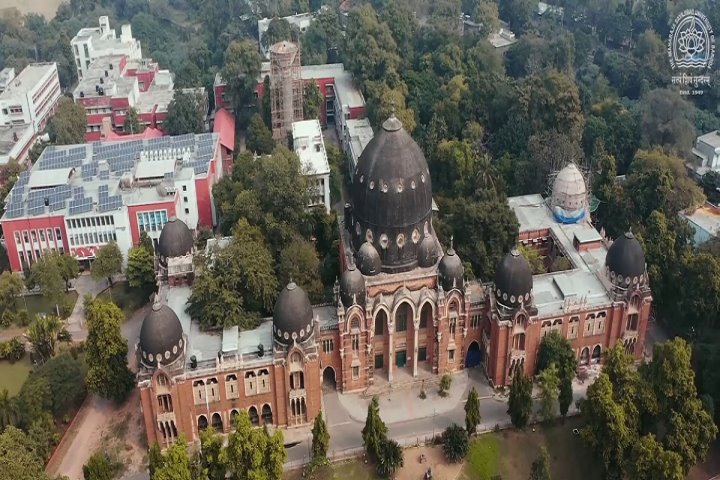
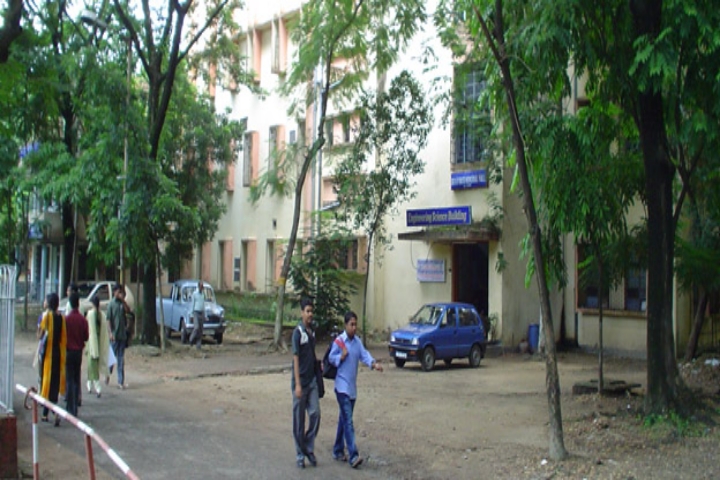
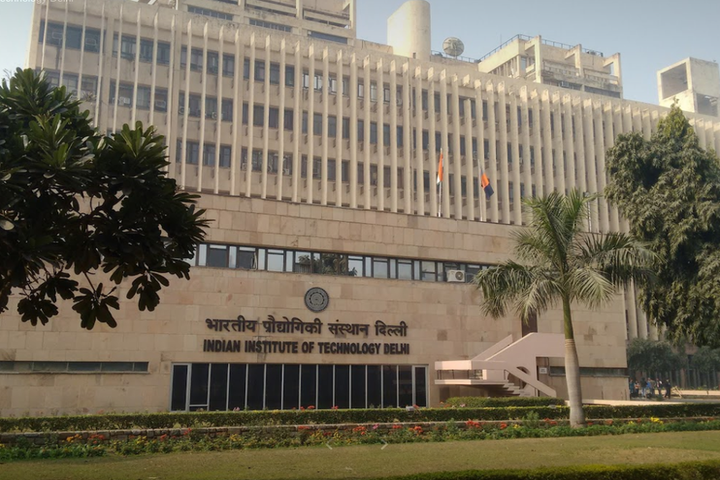
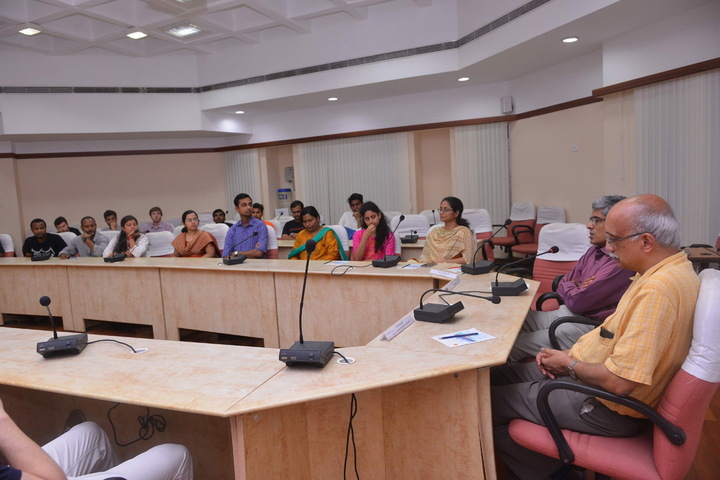

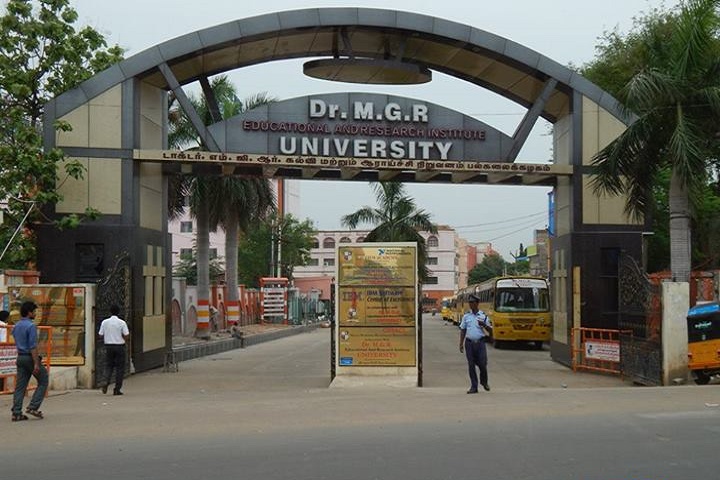
.jpg)




















